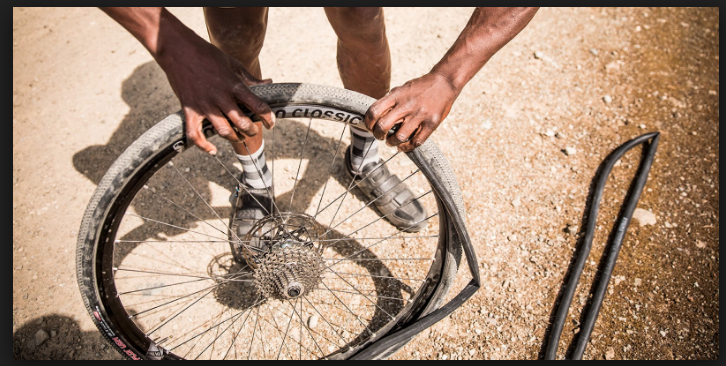Julie Summers is an underground hippy practical liberation writer. She covers the zero-expense, DIY, herbal, off-the-grid, cosmic beat. For years and years.
She wrote something once saying that she never wanted to a ride a bike faster than she was willing to fall off it at.
Makes sense.
Reminds me of the speeds I’ve seen 3rd World people ride at. The “Chinese grad student” speed.
The ideal speed of the bike.
Has been determined to be 12mph.
Hasn’t it?
That seems to be the speed that billions of people worldwide have settled into.
It’s a speed that is OK to fall off at.
Yet it is, of course, extremely efficient.
But we modern westerners love to go so much faster so much of the time.
Why is this?
Obviously, all speed is relative. It really has no literal meaning. Speed is cultural, too, I’m sure. There can be no way in which 28mph is “better” than 12mph. For 99% of our riding, anyway. Some us just “like” it. This like is obviously conditioned.
But by what?
What is western civ based on?
EXPENDABLE PEOPLE.
What is the 3rd world based on?
Irreplacable people.
We sometimes think that life is cheap in “those parts.” Is this true? Sure, people might not live long. But I think the basic notion of the 3rd world is that everyone is essential. It takes a village, right?
This relates to the difference between western and 3rd world BOATING to me, too.
In the 3rd world, the family NEEDS the fisherman to come home at night. Otherwise, they all die. Thus their boats have evolved over THOUSANDS of years to be as SAFE as possible. That’s the first thing. Then they need to get done what needs to get done. The culture follows. The people then “like” it when they get back alive and have what they need. 3rd world design is also ALWAYS built around fabrication and maintenance using natural materials that are close to hand. The fisherman builds his own boat. It may be fragile in a sense but it’s easily and quickly repaired with materials close to hand. And it takes little skill to build, to repair, to use. It’s evolved for a regular person to do it all quite easily. Makes sense!
But for westerners?
The design of much in the west stems from the desire for profit. And cheap, expendable crews. Western boating is based on big, cheap crews getting cargo somewhere as fast and cheap as possible and it does not matter if the crew all dies: the bottom line is what matters. Western recreational and luxury boating was based on this also. The upperclass enjoyed themselves and their helpers and crew were expendable. If they didn’t die, they could just always be replaced. Come and go as you like, we can always hire someone new. Freedom! And cheapness. And specialization. And displacement of cost and impact: put it on someone else, below you and/or out of sight, if you can.
Westerners grow up knowing that if they don’t want the cubicle or aren’t wanted in it, someone else is always there to fill their place. They aren’t needed. If you have insurance, or life insurance, it doesn’t even really matter if you don’t come home. The balance line works out. Kind of.
So in a weird perversion our recreation embraces the worthlessness that’s been branded on us. We often like to do things in a way that if anything went wrong we’d be dead or maimed in a blink. We do things at the highest, most extreme levels of special skill, where if we don’t stay honed, we simply can’t do what we like, or maybe we’re even doomed. The cutting edge. And we’re the ones being cut.
An interesting dynamic. A tension between cultures. Which one will win? Which is sustainable?




